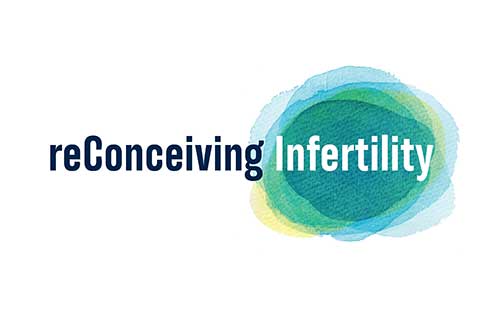
By Rhoda Smolow, Hadassah National President
Today begins National Infertility Awareness Week, and I'm excited to introduce a brand-new Hadassah initiative that's close to my heart: reConceiving Infertility. Together, we can raise awareness and fight stigmas around infertility. We can drive policy change and empower those who face this challenge. We can support the people we love and expand how we define family.
You’ll be hearing more about these advocacy and awareness efforts, including from journalist Amy Klein, our ambassador for Hadassah’s reConceiving Infertility initiative. Who better than the author of "The Trying Game: Get Through Fertility Treatment and Get Pregnant Without Losing Your Mind" to join us in speaking out?
Amy's powerful story involves nine rounds of fertility treatments, two egg donors and four miscarriages — in just three years. Amy's far from alone.
The more women and men I talk to, the more deeply I understand how so many have to rethink their lives and expectations because of infertility — and how devastating this can be. Here in the United States, one in eight couples have trouble getting pregnant or sustaining a pregnancy, according to the Centers for Disease Control. Among American Jews: it's even higher, nearly one in six couples, according to the Jewish Fertility Foundation. Higher rates of genetic diseases and reproductive cancers in our community increase the need for treatment, diagnosis and reproductive technology.
Many struggling with infertility find a Jewish community that stresses the importance of families but is often insensitive and unconsciously alienating. That's true for those who don't have children by choice, those who can't (for myriad reasons) and those who are trying to build a family through reproductive technologies, adoption or fostering. And their families — such as parents who may never be grandparents or siblings who may never be aunts or uncles — are equally affected.
There are so many who feel alone. Amy has said that it was a rabbi in her youth whose guidance helped her get through it all: Assur lehitya'esh. Never despair.
Jewish tradition has long acknowledged infertility — think of the Biblical stories of Sarah, Rebecca, Rachel and Hannah. Now it's time to do our part to make the Jewish community a place where we fight stigmas faced by women and men struggling with infertility. It is time to shift our culture. Our minds and hearts need to keep up with the scientific advances being made. (A big cheer for all the doctors on the vanguard of treatments and testing at the Fertility Treatment Clinic at Hadassah Hospital Ein Kerem.)
Before the COVID-19 pandemic began, we identified infertility as an issue on which Hadassah could make a meaningful impact in the United States. With reConceiving Infertility, we can be a counterforce to despair. Like many national challenges, COVID-19 has exacerbated this one, including the financial, emotional and physical toll of infertility for patients — from women at high risk for miscarriage or complications being told not to try conceiving, to others putting diagnosis and treatment on hold.
Hadassah has often spoken up about health issues that aren't comfortable for many of us to talk about. We helped build awareness and fight stigma around breast cancer, for example, with programs from Check It Out and The Uplift Project to Celebrate the Ta Tas. And now each year, even NFL players wear pink sneakers to raise awareness, one of my favorite examples of a huge shift of the status quo.
As a 300,000-strong Jewish women's organization dedicated to advancing health and wellness, there's a lot we can do — that's why we're creating new programs, videos and digital resources, and partnerships for reConceiving Infertility.
Today, from the safety of your home, you can act now to push for policies that expand access to infertility diagnosis and treatment.
Please spread the word now about this new Hadassah initiative, reConceiving Infertility.
Stay up to date. Look for reConceiving Infertility posts to help raise awareness on Hadassah's Facebook page.








